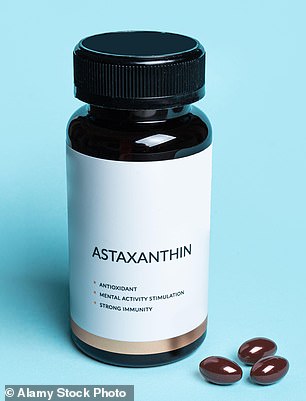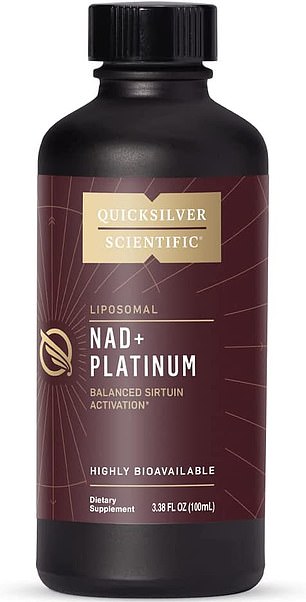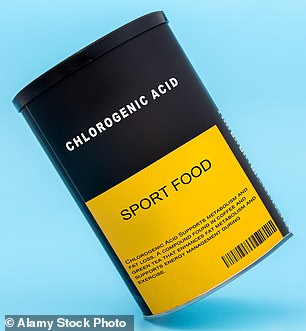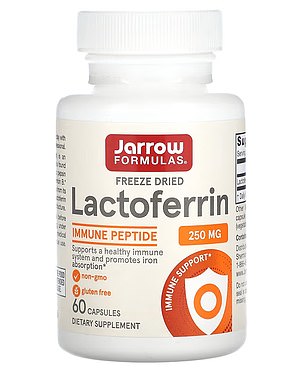By JANE ALEXANDER
Published: | Updated:
We used to take supplements to correct deficiencies in our diets. But newer supplements are being used to optimise health and ward off ageing – but which pills are worth taking?
There are so many out there, so much conflicting advice – and many of the people pushing supplements have vested interests. They’re often pricey, too. So are they really worth the outlay?
‘Supplements are important,’ says Dr Sandra Kaufmann, a longevity doctor in the US and the author of The Kaufmann Protocol: Why We Age And How To Stop It. ‘There are many things that we become deficient in as we age. In general, an over-arching multivitamin and mineral formula can be very useful, too.’
Others activate cellular pathways vital for healthy ageing. ‘For example, sirtuin pathways help keep our cells stable,’ says Dr Kaufmann, who trained in cellular biology and is also a paediatric anaesthesiologist.
Sirtuins are proteins that manage DNA repair and the ageing process.
‘As we age, these pathways start to fail – as a result, our body clock rhythms fail, we store fat in different places and we are more prone to cancer,’ she says.
But getting enough nutrients from our diet to trigger these pathways often isn’t possible. ‘You would need to eat a huge amount of blueberries daily to activate just one of the seven known sirtuin pathways,’ says Dr Kaufmann.
Many young influencers pop pills as if they were sweets, but most are only useful once we hit mid-life: ‘True ageing doesn’t start until around the age of 35.’
This form of supplementation is new and while some supplements have been tested in human trials, not all of them have – yet.

‘The evidence for taking them comes down to extrapolation from rodent or other mammal trials,’ says Dr Kaufmann. ‘So this kind of programme does come with a small leap of faith.’
It is a controversial field, but here are the supplements Dr Kaufmann thinks we should consider if we want to live longer and healthier, based on current evidence. She has no financial interest in any of these products.

ASTAXANTHIN
This is a powerful antioxidant, meaning it protects cells from damage from free radicals – unstable molecules that can cause premature ageing and chronic disease such as type 2 diabetes. It is said to be 6,000 times stronger than vitamin C.
Astaxanthin comes from tiny algae that give salmon, trout, shrimp and krill their colour.
‘Astaxanthin does several essential things,’ says Dr Kaufmann. ‘It prevents cholesterol being oxidised, which, in turn, reduces the risk of atherosclerosis [furred-up arteries] which lead to heart attacks and cardiac failure.
‘It also embeds itself in our cells’ membranes, preventing DNA damage within the cell.’ Essentially, it absorbs free radicals.
Dr Kaufmann says a review of more than 3,500 papers, published in Marine Drugs in 2023, concluded that astaxanthin is far more than an antioxidant: studies showed it can ease osteoarthritis pain and inflammation, improve vision in people working on screens, and improve chronic inflammation, for instance.
‘It’s an excellent supplement for people of all ages,’ says Dr Kaufmann. ‘There are no downsides although some people report increased bowel movements.
DOSE: 4-14mg daily

NAD+
NAD+ is a coenzyme (a ‘helper’ molecule that assists enzymes) found in every cell – and is key for energy production, DNA repair and healthy ageing.
When taken orally NAD+ is poorly absorbed. But you can increase your levels by taking NMN (nicotinamide mononucleotide) or NR (nicotinamide riboside) which are both precursors to NAD+ – in other words, our bodies use them to make NAD+. ‘These tend to be well absorbed when taken orally,’ says Dr Kaufmann.
She explains that, as we age, we require more NAD+ in our cells, but we create less.
‘Therefore, by the age of 40, most people are deficient. NAD+ is vital for healthy mitochondria [the cell ‘batteries’] and is involved in over 500 chemical reactions, including those for repairing DNA damage.
‘It’s renowned as a longevity superstar, with good reason.’
While it’s become very fashionable to hook up to IV infusions of NAD+, Dr Kaufmann warns they’re not recommended for longevity – ‘as too much can actually turn off many of the processes we’re trying to activate’.
‘While there are no large human studies, there is a plethora of non-human studies – including a 2018 review in Ageing Research Reviews showing NAD+ can prevent age-related decline and extend lifespan,’ she adds.
‘The real question is not whether to supplement but when to start. In our youth, we have plenty of it, so starting supplementation is an expensive folly. I’d start taking it around age 35.’
DOSE: 250-500mg a day of NMN or 300mg a day of NR.
CURCUMIN
Found in turmeric, ‘this molecule is so important that it is now included in many cancer treatment protocols,’ says Dr Kaufmann.
‘For example, at MD Anderson [cancer centres in the US], it is being studied as an adjuvant to enhance pancreatic cancer therapy, as it has anti-tumour activity and reduces fatigue during treatments.’
‘Curcumin is a potent anti-inflammatory and antioxidant. In addition it is a beneficial epigenetic modifier [it can influence how your genes are turned on or off], protects DNA and reduces lipofuscin [accumulation of waste in cells],’ she explains.
A 2022 review published in Antibiotics highlighted its anti-inflammatory, antioxidant, antimicrobial, and anti-parasitic properties, with pain-relieving and wound-healing benefits.
‘The challenge is that curcumin is poorly absorbed in the body,’ says Dr Kaufmann, adding that new formulations remedy this.
‘It’s a good supplement for most people, especially those with daily aches and pains.’ Possible side-effects can include upset stomach, an increased risk of bleeding and kidney stones.
DOSE: 500-800mg daily

CHLOROGENIC ACID
Chlorogenic acid (CGA) is an antioxidant found in apples, pears, broccoli and coffee.
‘This is an underappreciated manager in the fight against glucose, acting at several levels to keep blood glucose levels under control,’ says Dr Kaufmann.
‘Glucose gets processed into toxic molecules, called advanced glycation end products, which are dangerous because they’re inflammatory; they destroy collagen-based tissues; they bind to and damage circulating proteins [that play a key role in many bodily processes] and they cause DNA damage.
‘So controlling glucose is a key strategy in longevity.’
A review published in the journal Nutrients last year found that CGA ‘exerts diverse therapeutic effects . . . in chronic metabolic diseases and age-related disorders’.
‘Chlorogenic acid can be beneficial for pretty much everyone – providing they aren’t already consuming too much coffee,’ says Dr Kaufmann. Very high levels of CGA can lead to increased homocysteine, which in turn may be linked to heart disease and cognitive decline.
DOSE: 500-1,000mg daily
ELLAGIC ACID
This powerful polyphenol (beneficial plant compound) is found in berries, pomegranate and walnuts. ‘Ellagic acid increases DNA repair rates and helps control blood glucose levels,’ says Dr Kaufmann. ‘It is broken down in the gut into urolithins [compounds made by good bacteria] which improved your gut microbiome as well as improving mitochondrial function [the cell ‘batteries’].
‘Ellagic acid increases BDNF [brain-derived neurotrophic factor] – a protein that helps to strengthen and maintain connections between brain cells, and helps control levels of fats in blood.’ Dr Kaufmann says a review in the journal Heliyon in 2023 concluded ellagic acid has significant anti-ageing potential but more trials are needed. ‘Anyone over 45 would benefit,’ says Dr Kaufmann. Some people ‘do get a little gastro-intestinal upset’.
DOSE: 300-500mg daily
FISETIN
Fisetin is found in strawberries, apples and onions, but it’s hard to get enough from diet alone – you’d need to eat 400 strawberries to achieve a dose of 100-200mg. Fisetin is a powerful senolytic – it removes ageing, dysfunctional cells – and reduces inflammation, says Dr Kaufmann.
‘Studies in mice suggest it can extend lifespan and support brain function, bones and skin.’
While human studies are limited, she argues this is ‘a key supplement for people over 40’. Downsides may include gastro-intestinal discomfort.
DOSE: 100-200mg daily

LACTOFER RIN
This is a glycoprotein, a type of protein that has attached sugars, found in almost all the fluid parts of the body.
‘It binds to advanced glycation end products (AGEs), which destroy tissue and cause inflammation,’ says Dr Kaufmann.
A research review published in Molecules in 2022 concluded that ‘it stimulates cells of the immune system to mature rapidly to enhance the immune response’.
‘As there are limited ways of clearing out AGEs, this molecule is invaluable to anyone over 40.’
But lactoferrin may not be suitable for severe asthma sufferers and may cause gastro-intestinal discomfort.
DOSE: 300-500mg daily
DIHYDROMYRICETIN
Dihydromyricetin (DHM) is derived from the Japanese raisin tree. ‘This molecule activates sirtuin-3, the critical on/off switch that controls our mitochondria,’ says Dr Kaufmann.
‘After the age of 35, or with any disease that threatens mitochondrial health, sirtuin-3 activation is essential. It’s especially important if you have liver disease.’
A review of lab studies published in Biomedicine & Pharmacotherapy in 2021 suggests that
DHM can improve liver health after fatty liver disease and alcohol damage.
‘At present, human trials are limited, but the science is sound, and the molecule is safe to consume,’ argues Dr Kaufmann.
She suggests it for anyone who needs ‘an energy boost after the age of 35, or anyone that enjoys a drink or two’.
DOSE: 500-1,000mg daily
MAGNESIUM L-THREONATE
This compound combines magnesium with L-threonic acid, a small molecule in vitamin C.
‘There are many forms of magnesium but magnesium L-threonate hits the spotlight for its ability to cross the blood-brain barrier and thus improve brain health,’ says Dr Kaufmann.
‘It improves hippocampal plasticity [the ability of the hippocampus in the brain to change], improving memory potential,’ says Dr Kaufmann.
In animal and lab studies, ‘it has been shown to reduce anxiety, promote sleep and boost the brain’s ability to create new neural pathways’.
And a randomised, double-blind, placebo-controlled human trial – published in Nutrients in 2022 – found that a month-long regimen of a magnesium L-threonate supplement enhanced memory and cognitive performance in adults, particularly those over 40.
‘But care must be taken as there are many magnesium formulations, and too much total magnesium may lead to weakness, nausea, vomiting and irregular heartbeats,’ says Dr Kaufmann.
DOSE: 1,000-1,500mg daily.
SPERMIDINE
Spermidine is a natural compound in our bodies (found widely; not just in sperm). It’s also found in fermented foods, aged cheese, legumes, mushrooms and wheatgerm. We generally do not get enough from food.
‘Spermidine hit the headlines in the last five years for its role in autophagy [the process that clears out damaged components from cells] and its potential as a powerful longevity supplement,’ says Dr Kaufmann.
‘It protects DNA, boosts the immune system, improves hair and skin quality, and enhances cognition.’
A review published in Trends in Cell Biology in 2023 suggests spermidine can boost immune cells’ ability to fight tumours.
‘It’s ideal for anyone over 40,’ says Dr Kaufmann. ‘Potential side-effects include gastro-intestinal discomfort and potential allergic reactions.’
DOSE: 1-4mg daily








